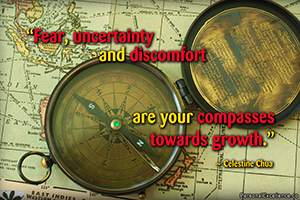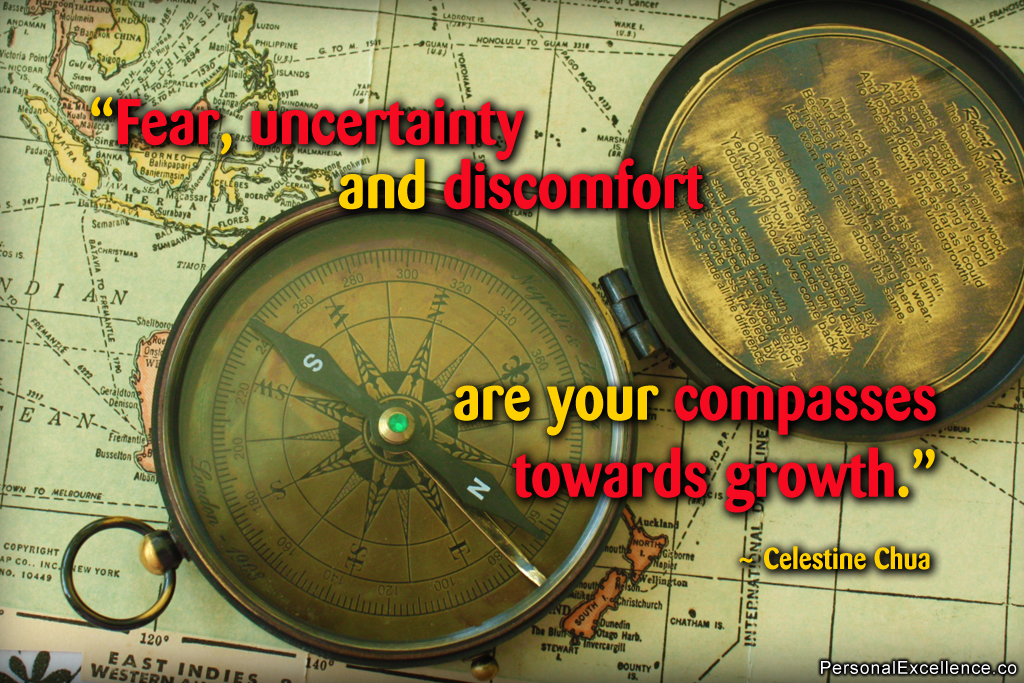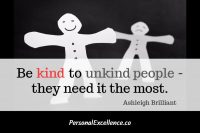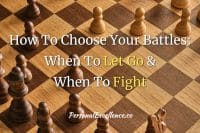
(Image: playbuzz)
Are you aware of your body language when communicating with others? Are you conscious of your body posture, gestures, facial expressions, and eye movements? Are you aware of the vibes you give out as a result of your body language?
Research has suggested that 60-70% of meaning in human communication is derived from non-verbal behavior. This means that only 30-40% of meaning is derived from the words themselves, which is arguably low given that words is the medium people use in communication!
Some would even go as far as to claim that body language makes up 90% of meaning in human communication (James Borg, Body Language). Now that’s a REALLY high figure if it is indeed true!
My Past Body Language
I have never given much thought to body language until lately, when I realized that I might have sent out vibes of aloofness in the past. First, let’s take a look at my body language in the past:
- Whenever I spoke, I would have a fairly serious expression.
- I would be pretty still, with minimal movements because I felt movement would be distracting. My head would be in a perfectly upright and still position, as opposed to some people who would tilt their head. I wasn’t even aware that I was doing this until someone pointed it out.
- I would abstain from giggling/smiling unless there was a reason to (e.g. someone saying a joke, happy stuff being discussed). This is because I used to think that giggling incessantly means being rude, bimbotic, and not taking the other person seriously.
- Half the time, my arms would be folded and my legs, crossed.
- I tended to recluse when contemplating. I would look away from the person, fold my arms, cross my legs, look very serious, and become quiet. All subconscious. Once I was done thinking, I would return to looking at the person and share what was on my mind.
- Other than speaking, I would be fairly quiet. I would try not to use filler words or sounds like “umm” or “ahh”, think out loud, nor do anything that would create noise (e.g. drum fingers and scratch surface area of stuff), as I felt these would detract from the conversation.
- Throughout the conversation, I would look very neutral. It didn’t matter even if the person said something that shocked or repelled me—I would process my feelings internally and appear neutral on the outside. This was especially so for negative emotions. Why? That’s because outwardly displaying emotion while the person is speaking may cause them to share things that they think I want to hear, rather than what they really want to say. I want to hear what the person really thinks, not biased opinions.
The above applied to my past interactions. I would behave differently if I was with a very close friend or talking about something I was very excited about, but the above applied for people I just met or weren’t very close with.
Getting Feedback on My Body Language
So I decided to ask my friend R for feedback on my body language, as feedback is one of the best ways to learn. Here’s the gist of what we discussed:
- Me: Hey R, I know that I can be seen as intense sometimes. What do you think?
- R: Hmm. I think that people who don’t know you might think that you are aloof and disinterested when first talking to you. But after chatting for a few minutes, it becomes obvious that you are not standoffish and are simply very focused on the conversation. You actually put a lot of thought into what is discussed and you give very well-thought-out responses.
- Me: You mentioned that people might think that I’m aloof and disinterested. What makes you say that?
- R: Well, earlier when we started talking, I was a little worried as I thought that you weren’t engaged. You looked very stern and you were really quiet. I thought that maybe you were bored or something. I later realized that I was wrong, because you began to ask some very deep questions relating to our topic, deeper than what other people would ask.
- Me: Besides looking serious and being silent, was there any other thing I did that made you feel that I wasn’t engaged?
- R: For example, looking away or looking down while we are talking (Celes: she was referring to the times when I was thinking). Folding of arms. (Celes: Which ironically, I began doing right after she said that! I frowned a little, then changed to cupping my kneecaps with my interlocked hands, after which R said…) Even cupping your hands over your knee caps also feels a little enclosed. It’s like a self-protective, defensive, stance. (Celes: *facepalms*) Having an overall neutral expression.
These make me feel a bit worried because I don’t know what’s going on in your mind and what’s happening in the conversation.
Me: But these are subconscious actions. They are normal to me and they are just part of my usual behavior when I think. What would you recommend me to do?
- R: Maybe smile more? Include the person in your thinking process. For example, do some body gestures, make some facial expressions (pursing your lips, having a thoughtful look, carrying a light smile), make some sounds (“hmm”), or have some eye contact, all of which are signs that you are thinking. Doing them would make me feel like I’m part of your inner world. I feel that this will also increase approachability too.
- Me: Hmm. How about my speech? Sometimes people say that I speak quite fast. What do you think?
- R: I don’t really think it’s a speed thing. Maybe some fluctuation in tone (high and low) and speed (fast and slow) will make you seem more engaged. Your current voice adds to the seriousness as you are speaking in just one tone and at a constant speed.
R’s feedback was an eye-opener for me.
You see, I have always suspected that certain aspects of my body language were “closed off” (like arm folding), but I never thought that my body language would make me appear “aloof,” “disinterested,” or “reclusive.” After hearing what she said though, it made perfect sense. All my body language patterns while conversing, especially while thinking (stillness, no expression, complete silence), were indeed indicative of reclusiveness.
Why I Had Such Body Language in the Past
The next step was to understand “why” I behaved this way. I believe permanent change comes from working through the issue inside-out, by addressing the roots. My qualm with most people studying body language is that they focus only on changing their actions, which may create their outward behavior but cover up whatever it causing the problematic body language.
Digging into my behavior, I realized that I had displayed such body language because firstly, I was afraid of letting others disrupt my thoughts. Secondly, I didn’t want people to “trample” on my personal space. But most importantly, I was afraid of letting others into my inner world.
As a result, I subconsciously created a “safe zone” through reclusive body language patterns. By erecting a barrier around myself (folding arms, crossing legs, looking away when thinking since thinking is when I’m in my vulnerable state, etc.), no one could “intrude” my personal space. No one would be able to enter my inner space. No one would be able to hurt me.
Upon realizing this, it was clear what I had to do—to let go of my subconscious, separation beliefs, and to convert them into oneness beliefs. While I had already embraced oneness consciously, apparently I still have subconscious separation beliefs, which gave rise to my reclusive body language.
For more about the separation mindset and why it’s detrimental to forming meaningful relationships, read: The Secret To Meaningful Social Relationships
Embodying a More Open Body Language
Since then I’ve been working to address this. On the inside, I’ve been reworking my inner beliefs. On the outside, I’ve been working on a more open body language, via the following steps:
- Loosen the boundary over my personal space. Stop trying to exert a barrier between me and the world. While it is fair to want some personal space, the way I had defined and exerted this space in the past was quite forceful. It’s now time for me to remove this boundary and blur the separation between my personal space and the outside world.
- Include the other party in my thinking process (open myself up; allow myself to be vulnerable). Give indicators when I’m thinking, such as filler sounds (e.g. “hmm”), giving a thoughtful look, and thinking out loud. Maintain eye contact even when thinking.
- Soften my gaze. How? By smiling, maintaining eye contact without staring, grinning when appropriate (not like a Cheshire Cat of course), and softening my facial muscles.
- Introduce some movement for a more dynamic interaction. For example, occasional movements like brushing my hair, gently moving my hands to express myself, and touching my face. All done as slow, fluid movements to be weaved into the conversation, not quick, rapid movements as they can be disruptive (unless the speed is to illustrate a point).
- Be more open in my body language. For example, when someone is talking to me, wear a gentle smile while receiving the message, vs. staring while analyzing what the person is saying (I used to do the latter). Keep the space in front of my upper torso open vs. closing it off (don’t fold my arms and put my bag at my side rather than hugging it to my chest or putting it on my lap).
I’ve only been doing these action steps for a week but I feel like I have been making good progress. :D It almost feels like I have been doing them forever! I look forward to applying them on a deeper level.
10 Tips To Improve Your Connection Through Body Language
Here are my 10 body language tips to build a more open connection with others:
- Smile. :)
- Keep the space open before your upper torso. Meaning, try not to fold your arms, put your bag on your lap, hug your bag, or do anything that covers up the upper front part of your body. Closing the space in front of you sends the invisible signal of “Don’t talk to me; I’m not interested to engage with anyone.” On the other hand, keeping the area open will make you more approachable.
- Have eye contact. Very important in making a connection. Eye contact helps establish connection and lets the other person know you are listening. …But don’t stare. Look away from time to time to give the person some space. Then re-establish contact after a split second. Some people may feel uncomfortable under a continuous gaze.
- Be comfortable in your space. Don’t squirm or lose yourself in your body. Own your space. Your body may take up physical space, but do you actually own that space? This is where self-confidence comes in. Read: How To Be The Most Confident Person In The World
- [For ladies] If you have to rest your head on your hand, keep the inner side of your hand (with the palm) faced outwards, towards the person (vs. resting on your elbow, with the outside part of your arm facing the other person). The former makes you appear more open.
- Minimize distracting movements, such as finger drumming, nail biting, skin peeling, and scab picking. Some of these are pretty bad habits anyway, so it helps to quit them. Read: Develop a Good Habit in 21 Days
- Slow down your pace. If you speak fast, consider slowing down, especially if you have to keep repeating yourself since it means that the other person can’t catch you. If you have to brush your hair, cross your legs, or make any movement, do them at a normal pace. Sudden fast movements like suddenly swinging your leg from one side to another, flicking your hair, and wildly waving your hands can take the other person by surprise and distract from the conversation.
- Be inclusive. Do movements that include, rather than exclude, the person into your space. (Of course, if you feel the person is shady, like he/she might be a molester or something, then keep your distance.)
Actions that separate and demarcate boundaries include arm folding, legs crossing, putting items between you and the person, and increasing the physical distance between you and the other party. Actions that are inclusive include reducing the physical distance between you and the other party (not to the point of being inappropriate), smiling, shaking hands, linking arms (for close friends), maintaining eye contact, occasional gestures towards the other person, and keeping space in upper front part of you open (see point #2).
- Be open with your emotions (but not in a cathartic manner). Let yourself be vulnerable by wearing your emotions on your face. If you feel sad, then express sadness. If you feel surprise, then express surprise. If you feel happy, then express happiness. Don’t keep your emotions inside yourself. Wear your heart on your sleeve. :)
- Pace yourself to match the person. At the end of the day, everyone is different. Tips #1-9 I have shared are ideals. However, not everyone is ready for them. Some people may take a very long time to warm up and may be intimidated by any outward display of emotion (point #9). Some people may be immensely shy and feel intimidated by any eye contact (point #3). Some people may get defensive and be taken off guard when you adopt an open posture (point #2).
It’s important that you assess each person individually, adopt the body language that will help you best connect with him/her, and work your way to open him/her up through gradual shifts. Embrace tips #1-9 as ideals and improvise where needed. Some people may be guarded which requires you to adopt more “defensive,” “closed off” body language to connect with them in the beginning, before moving to more open, connective forms of body language. Remember that there is no one-size-fits-all approach.
I hope you have found this piece useful. Be sure to share it with others; let’s help others to gain more awareness about their body language and work towards a more connective, inclusive, society! :)
Update: After posting this article, reader Al shared this message with me:
“[Your] article helped me eliminate a very tense situation with my current boss. I explained that when she is talking to me, or giving criticism, I am not looking away and flaring my nostrils and crossing my arms as a way to ignore her. I had a most productive conversation with her about it. Things are 100 percent better at work because of your article. Thank you. It changed my life. I was going to quit my job, but this article saved it.”
Get the manifesto version of this article: [Manifesto] 10 Tips To Improve Your Body Language
This is part of a series on interpersonal communication. Check out the other articles in the series:
- The Secret To Meaningful Social Relationships (How to Remove Social Anxiety)
- How to Make Small Talk with Anyone in 5 Easy Ways (Examples Included!)
- 10 Rules of a Great Conversationalist
- Are You Keeping People Away With Your Body Language? (And 10 Tips To Improve Your Body Language)
- How To Make a Good First Impression in 15 Minutes



![The Emotional Journey of Creating Anything Great [Infographic]](https://personalexcellence.co/files/infographic-emotional-journey-of-creating-anything-great-200x110.png)





 Thanks for reading. If you like my free articles, join my private email list and get my latest updates and articles sent right to your inbox.
Thanks for reading. If you like my free articles, join my private email list and get my latest updates and articles sent right to your inbox.